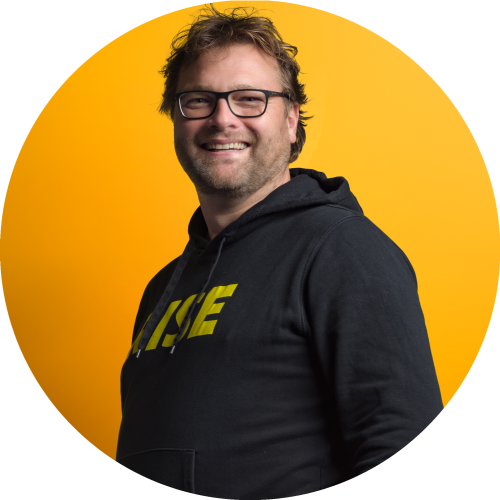We caught up with Thomas Blekman, co-founder of the Global School for Entrepreneurship, a Netherland-based, fully accredited university that focuses on applied sciences, and encourages its students to start their own business from day one.
by Emma Aasa
How do you incorporate value work in the entrepreneur program?
Thomas: We have learning coaches who give the students mentoring on personal levels. The coaching includes Point of Value’s ranking system as well as value mapping, all to help the students to develop faster than anywhere else.
There’s a need for this kind of tool in a lot of businesses where the students then
start their careers, as we see a lot of people challenged with doubts ‘But why do I
actually, work here and what do I want to achieve?’ We address that question from the
very start of the program.
How did you come to work with values, and specifically Point of Value?
Thomas: I was a clinical professor at Erasmus University, where I discovered the effectuation theory. I started applying it by building and developing tools and getting modules in the right order to help students build impact businesses from scratch.
From there I created the effectuator’s roadmap, which is used to structure and strategize one’s actions forward. And we keep adding tools to the curriculum and discovering new value, which is how I encountered Point of Value. It was one of my students who pointed me in the direction, because he had done the ranking, and it had helped him a lot.
Why is it important to know your values as an entrepreneur?
Thomas: Knowing your values deepens your self-understanding. Who am I? That’s one of the first questions an entrepreneur should ask. What drives me? A lot of entrepreneurial programs are about entrepreneurs and not for entrepreneurs. We focus on a program for entrepreneurs, and we apply the value measurements to give the students a better understanding of themselves.
True entrepreneurship is impact and relevance oriented and should be based upon one’s personal values and meaning. Knowing and acting accordingly to your purpose and your values becomes be a solid foundation on which you build a sustaining business.
What is it that you like about Point of Value?
Thomas: Many things, one is that it’s not a fixed photo, but instead this tool is evolving over time, you can see that it’s a journey. It is not static. There’s a lot of other measurement tools that put you into a box and then you can’t get out of it.
Our students get real life education, they are building their own businesses in real time, it’s not case studies. And therefore, the Point of Value’s ranking tool is of big importance for their development. It supports them as well as challenges them, and that’s what makes it interesting.
How has it benefited you personally to work with values?
Thomas: When we started off with the Global School, we wanted to really show how we could compare to what’s out there. We were competitive and developed around those types of values. Once we were more established, we could change from competition mode towards enjoying the actual success – and find strength in that instead of the competing part.


